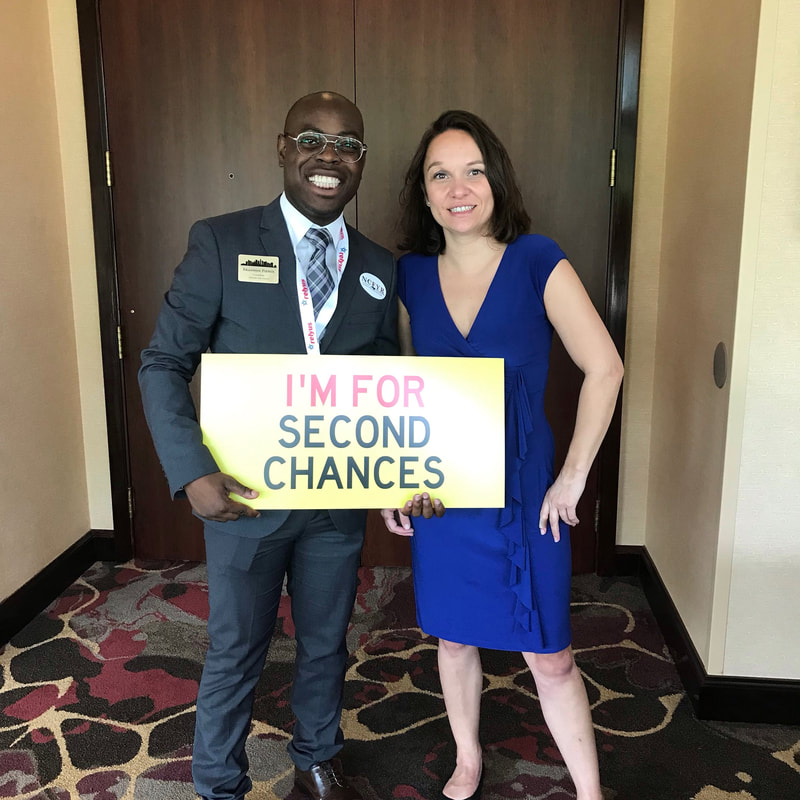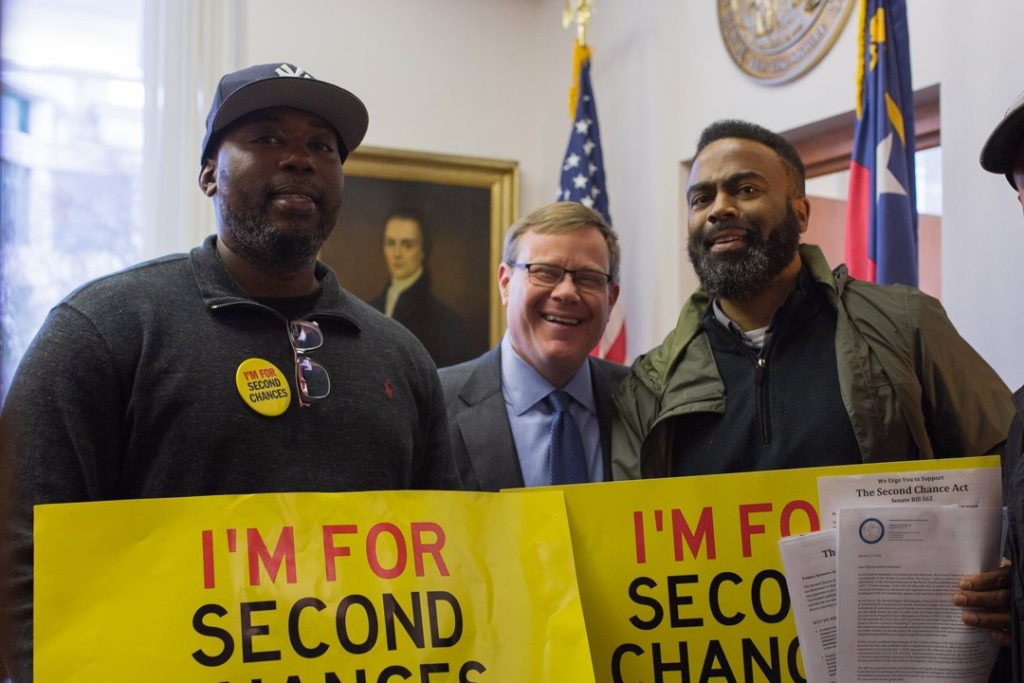


The Second Chance Act is a bipartisan “clean slate” bill that automatically expunges criminal charges that are dismissed or disposed “not guilty” after July 1, 2020, and allows individuals to petition for expungement of all nonviolent misdemeanor convictions after 7 years of good behavior. The definitions of “nonviolent misdemeanor” and “nonviolent felony” are not changed by this bill. Expunged criminal records are not available to the public, but expunged dismissals and convictions can still be accessed by district attorneys and considered by courts for sentencing if the person re-offends.
Why We Need Clean Slate Relief
- Criminal records of all types (even dismissed charges) cause devastating “collateral consequences” for many of the 1 in 4 adults with criminal records (2+ million North Carolinians). People of color are even more likely to face severe barriers to reentry and opportunity.
- People striving to lead prosperous, law-abiding lives face unnecessary, exclusions from jobs, homes, and other opportunities for years after exiting the criminal justice system. A 2018 study found a 25% increase in wages for people who had records expunged.
- By allowing people with dismissed charges and old nonviolent convictions to expunge their criminal records and find good employment, North Carolina will gain tax revenues, reduce the high costs of a revolving-door criminal justice system, and make communities safer.
- The risk of recidivism drops sharply over time. In a 2009 study, it was determined that after 4 years of good behavior a person convicted of a nonviolent misdemeanor is no more likely to commit a crime than an average member of society.
On May 8, 2019, SB 562 The Second Chance Act passed the Senate, 44-0.
The NC Conference of District Attorneys supports S562.
HOW THE SECOND CHANCE ACT/SB 562 PROVIDES CLEAN SLATE RELIEF
- AUTOMATIC RELIEF. A misdemeanor or felony charge that is dismissed or disposed “not guilty” on or after July 1, 2020, will be automatically expunged. (Exception: a felony charge that is dismissed pursuant to a plea agreement that results in any conviction)
- PROVIDES EXPUNCTION RELIEF FOR CONVICTIONS OF OFFENSES TREATED AS JUVENILE OFFENSES UNDER RAISE THE AGE. A person or prosecutor will be able to petition for expunction of all misdemeanor and Class H or I felony convictions that occurred when a person was ages 16 or 17 and prior to Dec. 1, 2019 (the effective date of Raise the Age).
- PROSECUTOR-INITIATED RELIEF. A prosecutor may petition for expunction of dismissed charges and charges disposed “not guilty” and “Raise the Age” convictions (see above).
- EXPANDS ELIGIBILITY TO MULTIPLE NONVIOLENT MISDEMEANOR CONVICTIONS. Current law provides for expunction of a first-time nonviolent misdemeanor after 5 years of good behavior and a first-time nonviolent felony after 10 years of good behavior. S562 would expand expunction eligibility by allowing an individual to petition for expunction of all nonviolent misdemeanor convictions after an extended “good behavior” wait period of 7 years.
- PRESERVES AND EXPANDS ALL “SAFETY VALVES” THAT EXIST IN CURRENT LAW. District Attorneys and victims are provided notice of a petition for expunction and can appear at the hearing. If a person re-offends after having a conviction expunged, the expunged conviction is treated as a prior conviction for all purposes of criminal prosecution and sentencing. A person is disqualified from expunging a nonviolent misdemeanor or felony if the person has ever been convicted of any offense not considered a “nonviolent misdemeanor or felony” under GS 15A-145.5(a).
- S562 DOES NOT CHANGE THE DEFINITION OF “NONVIOLENT” MISDEMEANOR OR FELONY. Current expunction laws and S562 disqualify the following convictions, among others, from being expunged under GS 15A-145.5: (i) A Class A through G felony or a Class A1 misdemeanor, (ii) any offense that includes assault as an element of the crime, (iii) any offense requiring registration pursuant to Chapter 14, Article 27A, whether or not the person is currently required to register, (iv) several enumerated sex-related and stalking offenses, (v) any felony offense in Chapter 90 that involves heroin, methamphetamines, or possession with intent to sell cocaine, (vi) felony breaking and entering of any building, motor vehicle, or boat, (vii) crimes committed because of the victim’s race, color, and religion, and (viii) impaired driving offenses.


